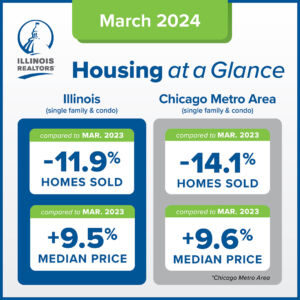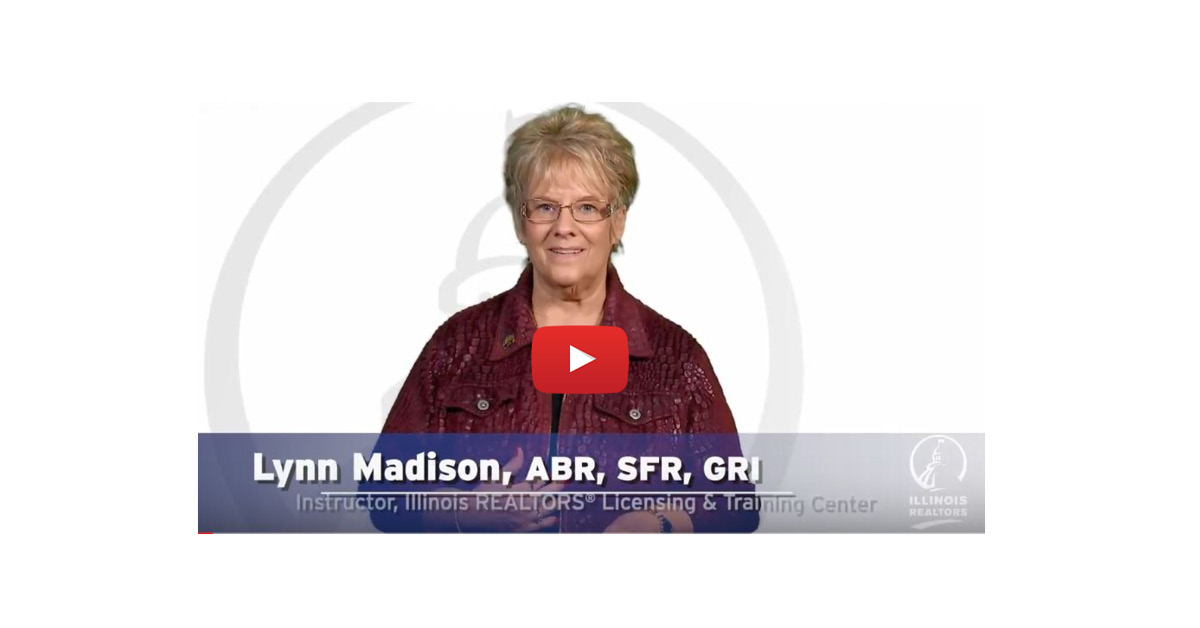In the last decade, several Illinois municipalities have passed what is commonly known as the “Crime Free Housing Ordinance.”
The stated purpose of these ordinances is to help prevent criminal activities in rental housing. The Illinois Association of REALTORS® has attempted to work with municipalities to ensure that the new requirements are not a de facto form of punishment of landlords who could not reasonably be expected to prevent the crime.
REALTORS® believe that a well-crafted program can include the following components:
Municipal Identification of “criminal nuisance properties”
Rental properties where there are recurring criminal activities can and should be identified. Some of these properties may be in need of special police attention or assistance. After identification, police can work with the owner to take steps to help reduce future criminal activities.
We have seen too many “crime-free” ordinances which treat ALL property owners as if crimes have already taken place on the properties. ALL owners must attend the municipalities’ “crime-free” workshop. ALL owners must be licensed. ALL owners must evict the tenant where a crime has taken place even though it’s unclear if that tenant is the perpetrator. This is not an effective targeting of resources. Police resources and other municipal resources should be targeted to properties where crimes frequently take place.
Municipal Reporting to Property Owners on Police Reports.
When a crime occurs on a property, the police should inform the owner of the property. While this may seem like a common-sense policy, there are many municipalities in Illinois where this does not occur. If the owner knows of an incident, the owner can be more vigilant and can steps to make the property safer and less likely for crime to occur (enhanced security and lighting for example). An automated reporting system can work in tandem with a building registration requirement. With registration, the municipality can collect essential information from the owner (or agent) to establish a point-of-contact for each residential rental building.
Eviction of Problem Tenants
Municipalities should be sensitive to the fact that the eviction process can take a long time to complete. The Illinois Association of REALTORS is supporting state legislation to help in this regard. House Bill 1532 allows landlords to evict tenants for the repeated use of the leased premises in a manner that disturbs the peace or is detrimental to the health and safety of the neighbors. This bill deals with major problems—3 or more events in a 60 day period where an arrest or citation was issued for a major criminal or disorderly offense.
This bill (which passed the Illinois House and is pending in the Illinois Senate) contains specific standards, due process, notice and defenses to evictions for tenants who are victims of domestic violence or other crimes.
REALTORS also recommend that ordinances include an “affirmative defense” for a property owner who cooperates with the police and could not prevent the criminal behavior of those residing in or visiting the property.
In addition, a “crime-free” program should never penalize a tenant or an owner for making calls for police service.




 Create professional development programs that help REALTORS® strengthen their businesses.
Create professional development programs that help REALTORS® strengthen their businesses.
 Protect private property rights and promote the value of REALTORS®.
Protect private property rights and promote the value of REALTORS®.
 Advance ethics enforcement programs that increase REALTOR® professionalism.
Advance ethics enforcement programs that increase REALTOR® professionalism.
 Protect REALTORS® by providing legal guidance and education.
Protect REALTORS® by providing legal guidance and education. Stay current on industry issues with daily news from Illinois REALTORS®, network with other professionals, attend a seminar, and keep up with industry trends through events throughout the year.
Stay current on industry issues with daily news from Illinois REALTORS®, network with other professionals, attend a seminar, and keep up with industry trends through events throughout the year.








